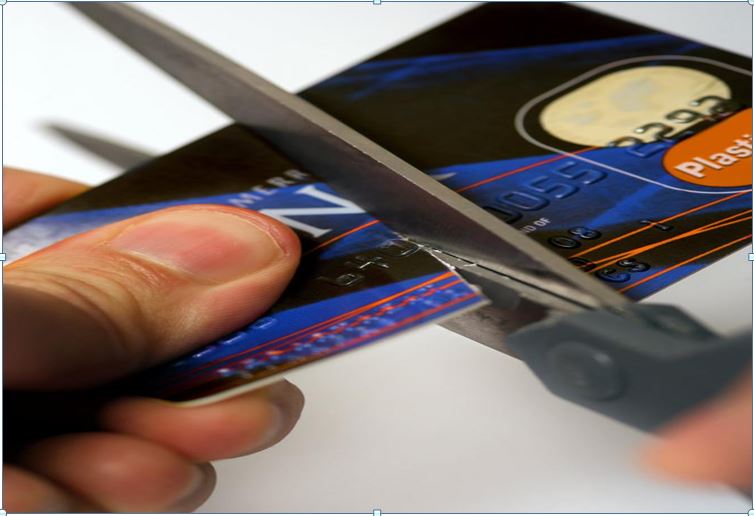
by Ajay oberoi | Bankruptcy, Consumer Proposal, Credit Counseling, Credit Repair, Debt Management
Credit Card use has been widely accepted as the most efficient way of handling your urgent or emergency mobile purchase needs. Having a credit card gives you access to purchasing powers or any financial aid for any method requiring trading options. Having access to this kind of trading method gives the option of traveling without you needing to bring along huge loads of money. This method gives you the needed protection that you would prefer to have for your finances enables you to carry on with your day to day tasks without any added worry of where to store your cash or from any threat of your money being stolen. When in use of a credit card, you will have the advantage of using its perk, but it does not stay forever, for it comes with a limit.
What Determines the Limit of your Credit Card?
When your credit card limit is being considered, the bank bases it off the customer’s debt in relation to the customer’s known financial resources at any level. A customer’s credit profile is reviewed as a factor in determining your limit for they comprise of the client’s payment history, related income, and the method of use. Setting the client’s credit limit is not that permanent, for they can vary depending on the use and payment habits of the client, decreasing or increasing it in the process.
What connotes an increase in credit card limit, it might be related to the fact that your credit has improved and is now eligible for more borrows and in some cases the bank would contact you and inform you that you have made the necessary adjustments to qualify and ask you how you want to increase your credit limit funds. Your debt to credit ration might benefit from your unchanged spending habits providing a way for you to have an easy fall back in case of emergency situations. You would also be able to ask for an increase in the limit provided that you have a curated history of on-time bills payment. If you have had a positive impact on credit use then your company would notify you that they have increased your limit for your great participation.
How could your limit decrease? If you have been doing the opposite of what entails you to an increase in the limit, like not falling behind in the payment of your bills and constantly abusing the use of your card even though you have already reached the limit multiple times, then that would net you the credit card limit decrease. It is important for you to track your own credit limit and be able to review your credit card use as well as be able to communicate effectively with your credit card company.
With all these in mind, wanting a higher credit limit is now a very easy task to accomplish. It is important to understand your credit card options and manage your credit card spending habits to be able to build a positive credit score helping you out in the future.

by Ajay Oberoi | Consumer Proposal, Credit Counseling, Credit Repair, Debt Management

While many people think that a credit score is just a buzz these days, the credit score, however, holds a significant value for many reasons.
A credit score tells a lot about a person to the most important individuals and institutions like;
- Insurance companies
- Banks
- Potential Employers
- Retailers and credit lenders
Hence, this simple score has the power to either make or break your credit reliability.
The power of a credit score
Many of us, if not all, must have had shared our credit scores with at least one of the above-mentioned parties. A credit score has the power to determine if you may or not get;
- Approved for mortgage
- A job offer
- Approved for a car loan
- Competitive rates of insurance
- A cell phone contract
- Line of credit, bank loan or a credit card
That’s right; a credit score tells interested people, how dependable you are in terms of finance. That is, a credit score is basically a true reflection of how properly you manage your finances and if you pay your bills in a timely manner or not. Therefore, these three digits from 300 to 900 may determine the options that you hold for the items, most valuable to your everyday life.
Good habits bring good credit score
The most important factor to make a good credit score is the repayment habits. Simply think where do you fall on the 1-9 scale when it comes to your debt repayments? The answer to this question will tell a lot about your current credit score.
It is important to review your credit score at least annually to know your financial standings. Moreover, do consider the power that your credit score has for the major events of life such as your child’s education, buying a car etc
Credit score comes with a number
No matter what kind of credit you have, the thing that matters is the number attached to that. This number, however, tells the people, who review your credit report, about your timely repayment structure. Mostly lenders rate an account by using number scale to know if you are paying to items as agreed to. This may include, repossession, collections, bad debt, payment made regularly via restructured plan of repayment and others.
How to calculate a credit score?
No matter what type of credit you have there is no exact formula to calculate it. There is no exact criteria that would determine accurately how much your score may increase or reduce, depending on your actions. However, with some general budgeting, money management, and debt repayment habits, you may help yourself to get a good credit score.
Following that, a credit score is important to build your trustworthiness and to open credit options for you in the future. A person with a bad credit score not only suffers from the current financial positioning but also closes the options for future as no lender would like to invest in doubtful circumstances. Therefore, follow the above-discussed steps to maintain a good credit score and to build more reliability amongst lenders.
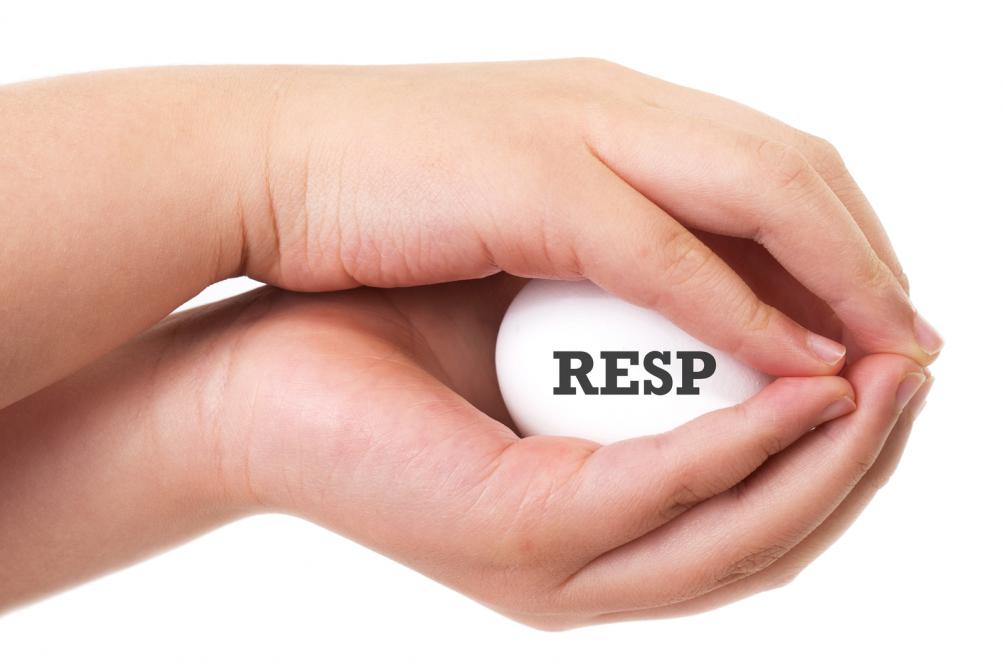
by Ajay oberoi | Credit Counseling, Debt Management

The RESP is no doubt a great strategy to start saving for the future of your child. We all agree that the cost of secondary education is on a rise and there is a major need to start saving from today. In case you are not aware; there is free money available for the education of your child that you might not be taking advantage of yet.
Are you utilizing the benefits of RESP?
A registered education savings plan is an account that is registered with the Canadian government. This is however, available even if you contribute no funds into the account. Moreover, the federal government may also add to your account with education grants. Also, these savings increases tax-deferred until withdrawn.
The benefits of an RESP can be obtained easily as the average income families receive CESG sooner. That is almost 40% each year with the contribution on first $500. However, the maximum grant of CESG and ACESG (combined) is of $7,200 per child.
How to withdraw money from RESP?
A person can withdraw money from the RESP account only once the child is graduated from high school. The benefits of RESP can be received once the beneficiary is enrolled in a full-time or part-time educational program (post-secondary). Only then can money be withdrawn on his or her behalf and that is to pay off their studies expense using the RESP account.
How much amount can be withdrawn each year?
For this, it is recommended to consult a professional tax advisor. Also, while withdrawing the amount from the RESP account, it is important to always direct the financial institution as to how much funds should be withdrawn from the contributions (PSE). Similarly, how much funds should be withdrawn from the EAP – non-contribution fund.
How much amount can be contributed to RESP?
As much amount as you contribute, the government of Canada will give 20% of that amount. This amount will be up to a grant of $500 (maximum) per year for an individual child. That is, the beneficiary of the RESP may receive the maximum of $500 grant per annum and for that, a person would need to contribute up to $2,500 each year, to your RESP.
What happens to the unused money?
In the case, the money remains unused or the RESP closes or expires, the money from the Canada Learning Bond will eventually return to the Canadian government. Moreover, all the other money of the account will then return to the original depositors of the money.
Remember that an RESP account remains open for up to 36 years, therefore, in the case your child does not seek further studies after the high school, there will still be time for you to take advantage of this money as there will still be a time period for which money will be available in the account.
In bottom line
While this account might not be as user-friendly as any other bank accounts, a person should always take advantage of it as there are various plans available to save your child’s further education.
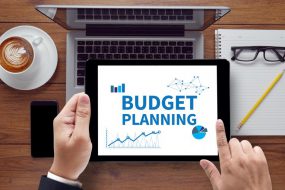
by admin | Consumer Proposal, Credit Counseling, Credit Repair, Debt Management

Remember the month, when you were barely able to make ends meet with your budget? We all agree that creating a monthly budget is necessary and helps us in many ways. However, this monthly budget may not save you from facing a month, when you would need extra money to pay your expenses. So what really puts a budget out of action?
While this may include the factors like heavy property bills, the heavy tax on water bills or some uncertain situations like poor health. With these variable expenses, sometimes, it becomes difficult to faithfully follow the budget. Hence the experts suggest that a good budget always keeps provision for these uncertain situations so that whenever any of such expense comes due, you got the money ready for them.
Still, this approach might not work for you as it would be difficult for you to take out money for uncertain or additional expenses from a monthly income, therefore; let us have a look at some other factors that might help you in making a good functional budget.
Writing down your income, expenses, and spending
The foremost step is to list down your income and expenses. This will help you in managing your money and tracking the spending behavior so that you may fulfill your goals. While it would be easy to list down the income that is expected to be received over time, it may be difficult to write down the expense, as it might require some close attention.
The track of spending may include every little item such as candy, coffee and cigarettes etc. The tracking should continue for at least a month or two as you pass every day at home, at play or at work.
Set appropriate saving goals
Considering what you want in your life, what dreams you want to achieve, you may like to set some short-term, medium-term or the long-term goals. The short-term goals may include saving up for some tour. A Medium term may include saving up for a car and the long term may include saving up for your retirement or your child’s education.
It is important to decide these goals with a realistic approach and once done, it’s time to figure out ways to attain them within the framework of our income and expenses. Since goals keep changing, you may also need to revise or re-evaluate your budgeting.
Make a saving plan
A habit of creating a budget itself opens up many options to make a proper saving plan. Since budgeting gives you a clear idea of personal spending, you may know always where you need to spend and where to save. However, if you are short on savings, your priority should be to start an emergency fund so that in the case of uncertain circumstances, your budgeting may not get disrupted.
By following the steps discussed above you may create a good budget for a month that would not only help you in saving some amount but would also help in dealing with uncertain realities.
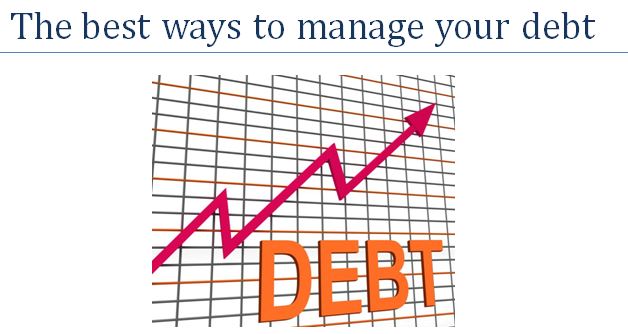
by admin | Debt Management
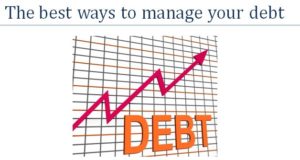
It is not unusual to find yourself in a little debt every now and then. However, if you are not careful with your expenditures, your debts could skyrocket very quickly. As your debts grow, your credit score will deteriorate and it will become harder and harder for you to borrow from the lenders. Eventually, you might find yourself in a position where you are unable to pay your debts and this could have serious financial consequences for you.
Let’s look at some of the ways you can bring your debt under control.
Make on time loan repayments
Make a list of all your debtors and the amounts you owe them. Note down the payment due dates and keep your list updated as your debt amount changes. Try not to miss any repayment due dates. Lenders usually charge a late fee if you miss an installment. Depending on your loan contract, some lenders can also increase the interest rate they charge from you if you keep missing repayment due dates.
It is a good idea to create a monthly repayment calendar to keep track of the payments that are due.
Prioritize your debts
It is better to pay off your credit card debts first because they usually have very high interest rates. Also, talk to your lenders. Some of them might be willing to reschedule your loan payment without any penalties. This will lessen the pressure on you.
Create a budget
You’ll need to develop a well thought out budget that is based on your needs. You’ll need to have patience and determination to stick to your budget too, and avoid spending unnecessarily. Only purchase things you really need. Strictly following your budget will help you save money for the quick repayment of your loans.
Apply for smart loans
Don’t go for the loans with high interest rates. They will unnecessarily add to your worries. If you need a small amount of money to balance your budget, you could always apply for a pay day loan. These loans are offered by many online lending services on very easy terms.
The online pay day loan providers do not consider your credit history before approving your application. All you need is a stable source of income to apply for these loans. They also charge affordable interest rates on the money they lend and offer very flexible repayment terms.
Get help!
Sometimes, your debt problems become so bad that you are unable to bring them under control. When this happens, you should turn to a credit counseling company or a debt management consultancy for help. They will help you create a debt management plan to work out your loan problems.
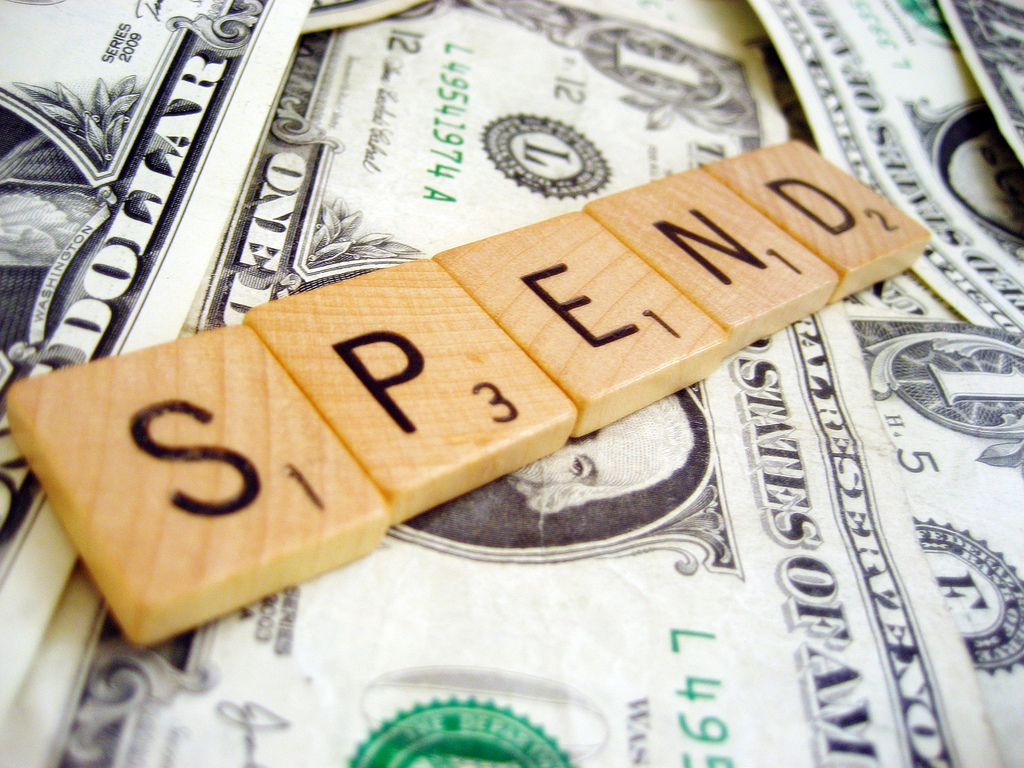
by admin | Bankruptcy, Consumer Proposal, Credit Counseling, Credit Repair, Debt Management
The proper management of your money can help you ward off financial difficulties and make life easier for you. If you are a smart thinker, you’d probably be wanting to find ways to manage your money more efficiently. In fact, you can really save a lot by creating a simple money management plan to help with your expenditures.
What should you do?
Here is what you need to do to manage your money properly:
• Know what you really need
You should be clear about your short and long term goals. You must know how much you’ll need to achieve your goals and how long it will take you to achieve them. Don’t be passive! Actively pursue your goals and keep in mind that their achievement will only be possible if you are willing to make sacrifices by not spending money on things you don’t need.
It is always difficult to get started. The best place to start is by tracking your current expenditures. Did you really need that item you bought yesterday? Is it really necessary for you to be spending money on that new car? You must realize the difference between wants and needs. To achieve your financial goals, you’ll probably have to cut down on your wants and focus more on your needs.
• Creating a budget
If you create a good budget, your chances of accumulating debt will decrease. Your credit rating is likely to go up and you’ll have excess money to save or to invest in schemes that can generate profitable returns for you.
Your budget will determine the amount of money you spend on utility bills, living costs, clothing, travel, etc. If you need help creating a budget, you can always turn to online budget planners or visit a money management service.
At times, balancing a budget can be quite tricky. You’ll probably need to cut down on a service that you are currently using. For instance, if you are a member of a club you don’t often go to, it might be wise to cancel the membership and save money on membership fees.
Constantly review your budget. Life is not predictable! Accidents can happen from time to time and you need to be flexible with your budget. You’ll need to adjust your budget to meet unexpected expenses, but try your best not to go into debt unless it is absolutely necessary.
Good things can also happen to you. You could get a salary raise. If you do get hold of some extra cash, treat yourself to something good, but don’t forget to save some of it.
• Invest your savings
You can either save your money in a bank account or invest it in a smart scheme which will help you grow your wealth. Regular savings account, certificates and bonds, and mutual funds or stocks are common choices for the smart investor. Don’t let your hard-earned money just lying around. Invest it wisely and watch your money grow.
It would be advisable to invest in a safe option like a regular savings account, or fixed-term certificates. Stocks are not ideal for small investors because you run the risk of losing some or all of your money.
These tips are sure to help you manage your money better and save up enough to meet your financial goals. So spend wisely and start saving!













